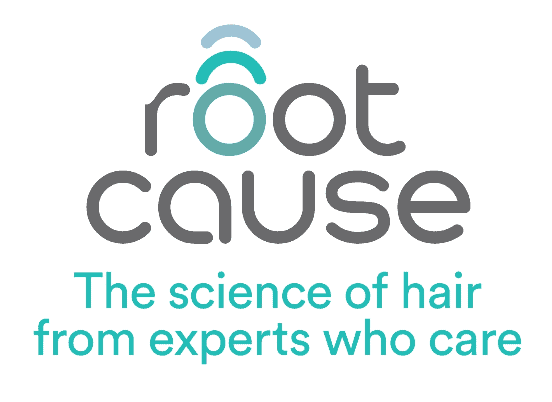Case study: racial bias and diagnosis of hair loss conditions on dark or black skin
07.06.23
In this article, we discuss an extension of the journal by Jacky van Driel with regards to racial bias in diagnosis of hair loss conditions on black or dark skin with 4C curl or textured hair types.
In this case study, we talk about our client, Gwyneth*.
Why Gwyneth approached us
Gwyneth has dark skin hair type 4C hair and has been experiencing a hair loss condition over many years, which had been previously diagnosed as female patent hair loss (FPHL).
Gwyneth’s hair is natural, non-chemically treated Type 4 hair. Her symptoms consisted of dry tender scalp and thinning edge, receding hairline .
Following the diagnosis Gwyneth has spent hundreds of pounds on the treatment for FPHL over many months, even years.
She had not experienced any significant improvements and was concerned as to why her hair loss was not responding to treatment and booked an Online Hair Loss Consultation with Root Cause Clinical for the first time.
Importance of racial bias education
In our experience, understanding how the same hair loss and scalp conditions can present differently on dark or white skin is crucial to be able to deliver an accurate diagnosis.
Following graduation, many trichologists may not have received any, or at best, very little training on diagnosing scarring alopecia, hair loss or scalp health problems on dark skin.
Qualified registered trichologist, co-founder of Root Cause Clinical Wil Fleeson CiT ART, writes of his personal experience working with and helping Gwyneth.
‘Following the idea to create the Root Cause Clinical online clinic, an early decision was made to invest in educating all our practitioners in diagnosing conditions on dark and black skin. We enlisted the considerable expertise on this subject of Jacky van Driel CiT ART. Jacky has developed an education process to train and develop the skill sets of all our on-line practitioners to understand how different hair loss and scalp health conditions present on black skin.’
How we helped Gwyneth
After an online meeting with Gwyneth, using our understanding of how conditions look, Wil could see that there was in fact, an area of inflammation (see image below) on the left hairline within her scalp, that was presenting as cicatricial/inflammation damage to the dermal tissue of the scalp.

In white skin, this area would present as red or very pink, inflamed looking skin, however, on black or dark skin, the same inflammation presents as a darker purple, almost bruised looking area of scalp.
Without being properly educated, this could easily be missed, which appears to be the case for Gwyneth in her previous diagnosis.
Following the online consultation, we were able to diagnose Gwyneth accurately as having a condition known as Central Centrifugal Cicatricial alopecia (CCCA), which is a form of scarring alopecia on the scalp that results in permanent hair loss. It is considered one the most common forms of scarring hair loss seen in black women.
This is a different condition to FPHL, as with this condition the follicles are being miniaturised because of hormone sensitivity.
CCCA is a condition with which the scalp skin tissue has been damaged by the body’s immune system, creating a permanent scarring hair loss, which will not respond to treatment for FPHL.
In one study an association has been detected between the use of sewn in hair weaving and cornrow braiding hairstyles with synthetic hair extensions with the onset of CCCA.
In the same study, it contradicts anecdotal beliefs that hot combing or chemical relaxing of Type 3 or Type 4 textured hair can develop CCCA.
Following the diagnosis, we decided on a treatment plan for six months of attempting to stimulate the follicles that remained and reducing the scalp inflammation with a bespoke compound created by our pharmacist of topical steroid and minoxidil, to see what density could be naturally regenerated.
Impact on our client
At the end of the treatment process, we then discussed the options with Gwyneth as to whether there is enough density recovery so that she is happy with the result, or whether the next treatment protocol, which could possibly be platelet-rich plasma (PRP) or transplantation of the hair.
For Gwyneth, although she was naturally devastated that she had a form of permanent hair loss, she was also relieved that she now had an accurate diagnosis with an accurate prognosis of how the hair and scalp can be treated and potentially recovered.
Education is essential
In summary, the importance of education and delivery of accurate diagnosis can never be undervalued, not only as a trichologist, but also for the clients that are receiving our expertise and knowledge, and relying on others to deliver accurate information which helps both their physical and emotional well-being.
If you recognise Gwyneth’s story and are worried about yourself, or someone you know thinks they are experiencing CCCA, please book a consultation with one of our expertly trained trichologists.
If you would like to learn more about racial bias, read Jacky’s article here.
* name changed for anonymity
